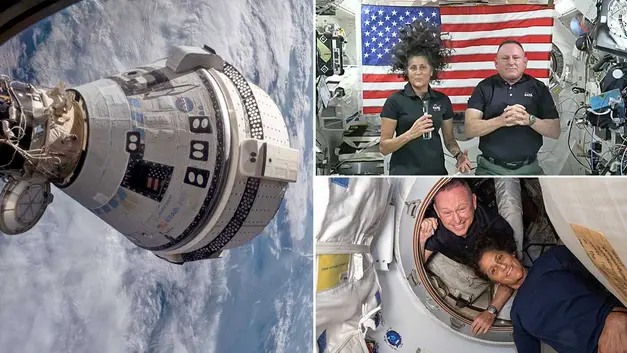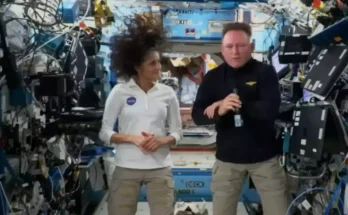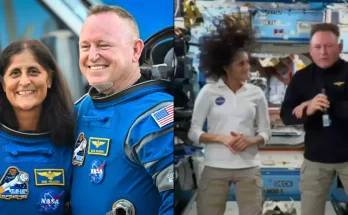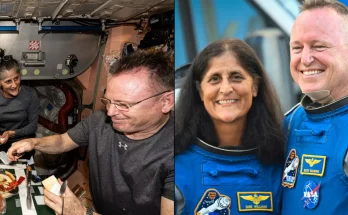NASA officials announced on Saturday that the troubled Boeing Starliner spacecraft that shuttled two astronauts to space in June will return to earth without them.
Astronauts Butch Wilmore and Suni Williams have been stuck in space after engineers discovered helium leaks and issues involving thrusters shortly after Boeing’s CST-100 Starliner docked with the International Space Station, which prompted NASA and Boeing to investigate.
The uncrewed return allows NASA and Boeing to continue gathering testing data on Starliner during its upcoming flight home, while also not accepting more risk than necessary for its crew, NASA officials said.
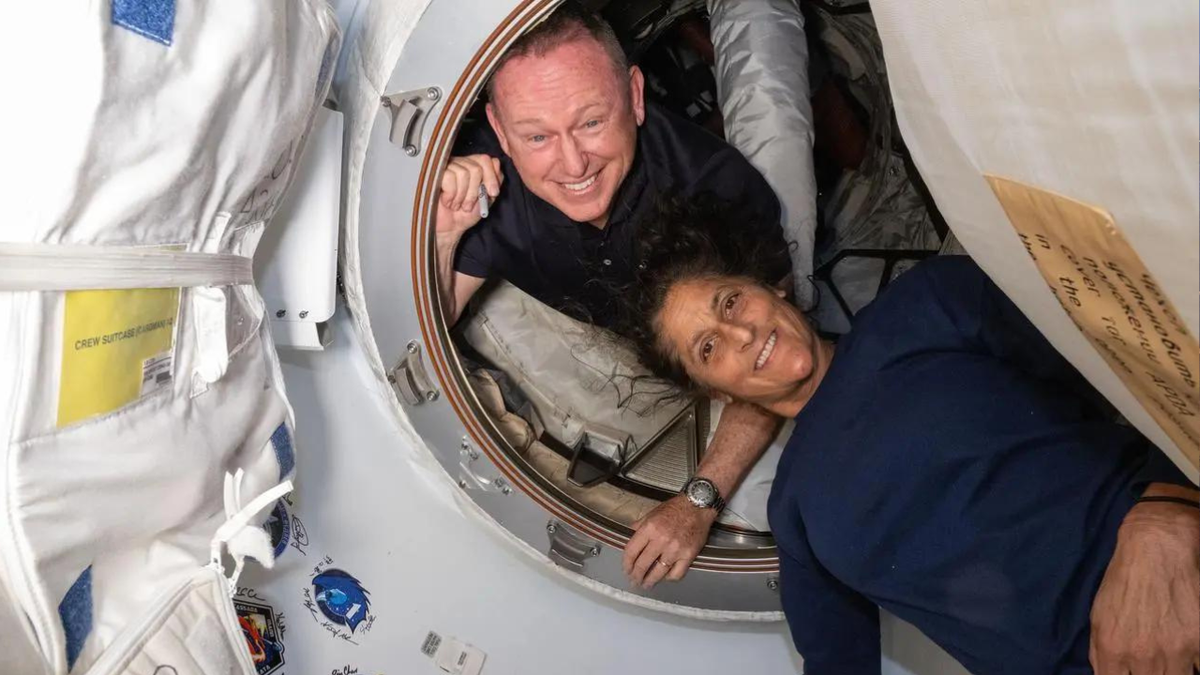
NASA’s Boeing Crew Flight Test astronauts Butch Wilmore and Suni Williams pose on June 13, 2024 inside the vestibule between the forward port on the International Space Station’s Harmony module and Boeing’s Starliner spacecraft. (NASA)
“The decision to keep Butch and Suni aboard the International Space Station and bring Boeing’s Starliner home uncrewed is the result of our commitment to safety: our core value and our North Star,” NASA administrator Bill Nelson told reporters.
“I’m grateful to both the NASA and Boeing teams for all their incredible and detailed work.”
The pair originally blasted off from Florida’s Cape Canaveral Space Force Station on June 5, on a test flight mission that was initially expected to last a week.
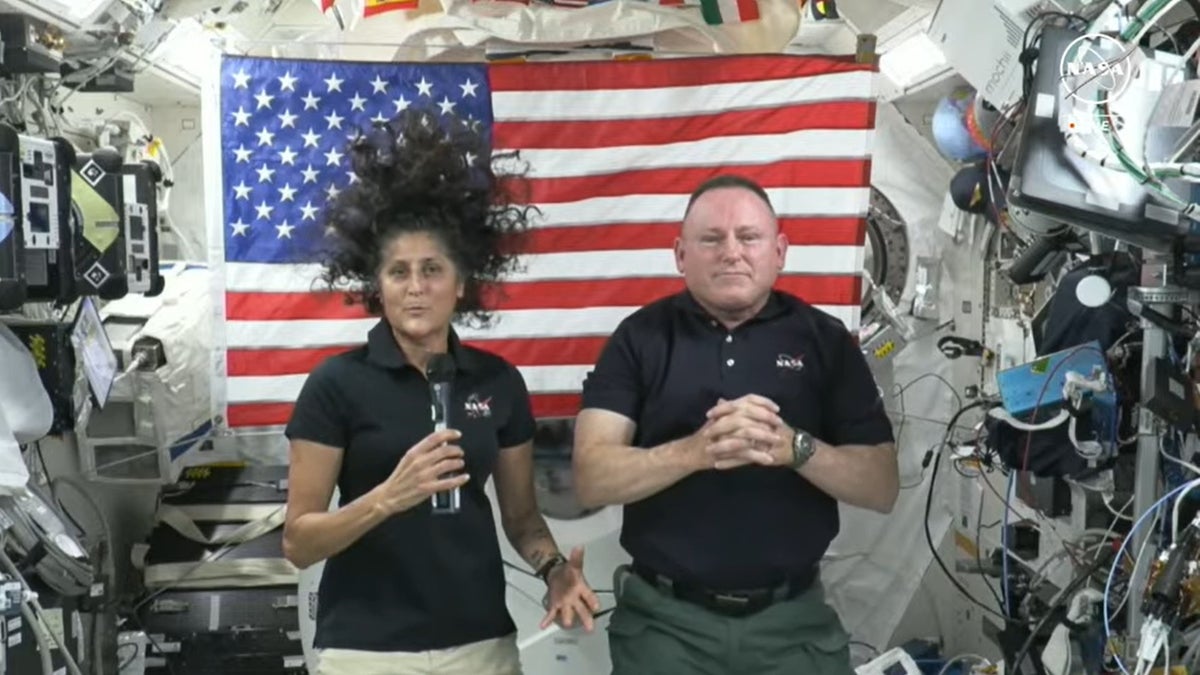
NASA astronauts Suni Williams and Butch Wilmore will not be returning to earth with the Boeing Starliner spacecraft that shuttled them to the International Space Station. (NASA)
They will now return with a SpaceX Crew-9 mission, which will likely not launch before September as that mission needs to reduce its crew of four to two to make room for the stranded astronauts, who are expected to return in February 2025.
Since the problems were identified, engineering teams have been poring over data, conducting flight and ground testing, as well as developing various return contingency plans.
The uncertainty and lack of expert agreement about being able to return the crew safely on the Starliner prompted NASA leadership to move the astronauts to the Crew-9 mission.
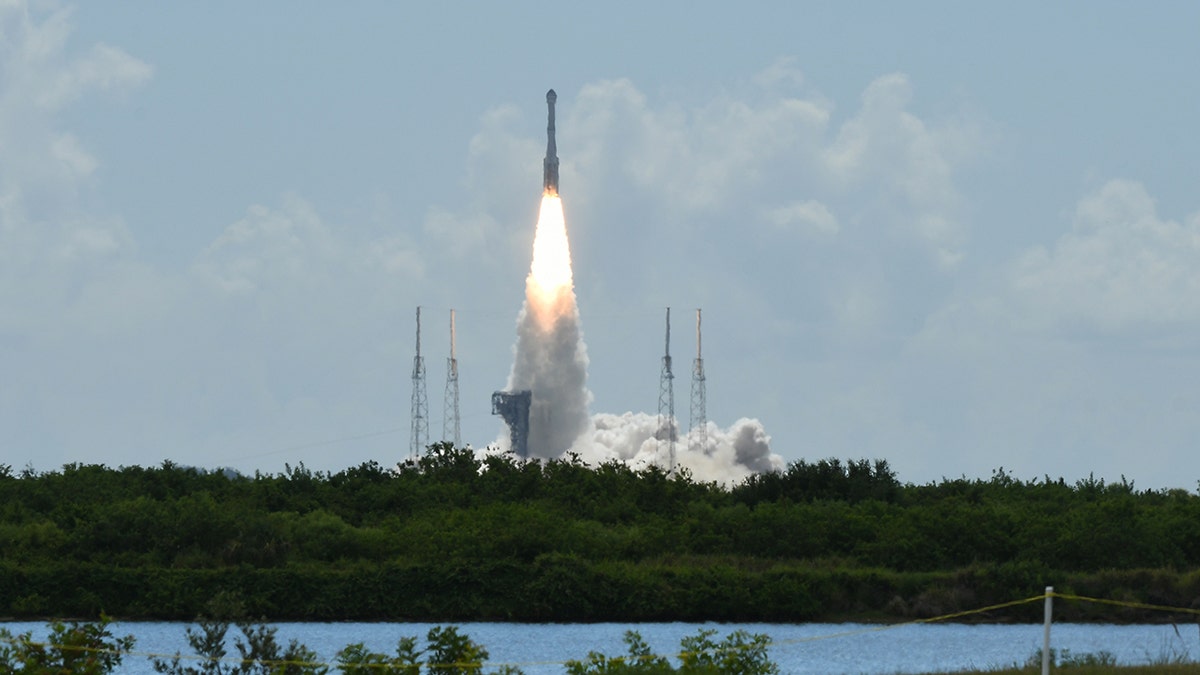
A United Launch Alliance Atlas V rocket carrying Boeing’s CST-100 Starliner spacecraft launches from Cape Canaveral Space Force Station on June 5, 2024 in Cape Canaveral, Florida. (Paul Hennessy/Anadolu via Getty Images)
Starliner is expected to depart from the space station and land back on earth autonomously in early September, which it is designed to do. The spacecraft has completed two uncrewed flights in the past.
Steve Stich, manager of NASA’s Commercial Crew Program, said Starliner is a very capable spacecraft and, ultimately, the decision came down to needing a higher level of certainty to perform a crewed return.
“The NASA and Boeing teams have completed a tremendous amount of testing and analysis, and this flight test is providing critical information on Starliner’s performance in space,” Stich said.
“Our efforts will help prepare for the uncrewed return and will greatly benefit future corrective actions for the spacecraft.”
